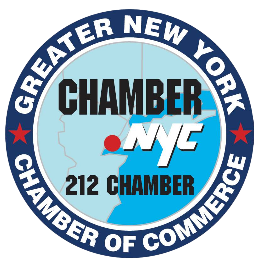Doing Business with the MTA
The Metropolitan Transportation Authority (MTA), in partnership with the Greater New York Chamber of Commerce, recently hosted an informative webinar designed to engage and support local businesses. The event focused on several key initiatives aimed at expanding opportunities for small and diverse businesses within the MTA’s procurement and contracting ecosystem.
A major highlight of the session was an overview of the Disadvantaged Business Enterprise (DBE) certification process, which opens doors for minority, women-owned, and other qualifying firms to access federally funded projects. In addition, the webinar spotlighted the MTA’s Small Business Mentoring Program (SBMP)—a valuable initiative that provides technical assistance, capacity-building support, and hands-on mentoring to help small businesses succeed in the construction industry. The program is specifically designed to prepare qualified firms to compete for MTA contracts and grow sustainably over time.
This collaborative webinar reflects the MTA’s ongoing commitment to economic inclusion and local business development, reinforcing its role as a key driver of equitable growth across New York’s metropolitan region.
1. Register as a Vendor
Before you can bid on MTA contracts, you must register with the MTA Vendor Portal at www.mymta.info. This portal allows businesses to:
- Create a vendor profile
- Search for solicitations
- Submit bids electronically
You’ll need your company’s basic information, a DUNS number, and possibly NAICS codes that match your products or services.
2. Understand the Procurement Process
The MTA follows strict public procurement rules to ensure fairness and transparency. Contracts are typically awarded through:
- Request for Proposals (RFPs) – for complex services or goods
- Invitation for Bids (IFBs) – for more straightforward projects
- Request for Qualifications (RFQs) – often used to shortlist firms for future projects
Procurements can range from construction and IT services to office supplies and maintenance.
3. Meet Compliance Requirements
Vendors must comply with various legal and regulatory requirements, which may include:
- Disadvantaged Business Enterprise (DBE) or Minority/Women-Owned Business Enterprise (M/WBE) certifications
- New York State labor laws and wage standards
- Insurance and bonding requirements
4. Certify as an M/WBE or DBE (If Applicable)
If you're a minority-, woman-, or disadvantaged-owned business, you may qualify for special programs through:
- New York State Empire State Development (ESD) – M/WBE certification
- U.S. Department of Transportation – DBE certification for federally funded projects
These certifications can increase your chances of subcontracting or bidding on set-aside opportunities.
5. Stay Informed About Opportunities
Monitor opportunities through:
- MTA’s Vendor Portal
- The New York State Contract Reporter (www.nyscr.ny.gov)
- MTA Capital Program updates (for infrastructure and modernization projects)
You can also attend MTA-sponsored outreach events, virtual webinars, and procurement fairs to network and learn about upcoming bids.
6. Build Relationships
Forming relationships with MTA procurement officers, project managers, or prime contractors can open doors, especially for new vendors or subcontractors. Responding to smaller solicitations or subcontracting can also help establish your performance history.
